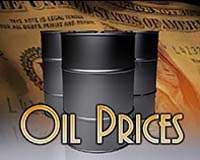 |
Caracas, Venezuela (UPI) Apr 8, 2011 Venezuela is battling inflation as it struggles to shed more than two years of recession that has blighted the oil-rich nation's economy, society and politics. President Hugo Chavez mocked critics in March as he announced his intention to run for a further term. An opinion poll this month said Chavez would win the 2012 elections. The GIS XXI survey said Chavez has a support level of 51 percent while both opposition and pro-government legislators had lackluster following. The survey polled 2,500 people March 11-17 and found Venezuelans still angry at the opposition for withdrawing from the 2005 election that gave Chavez a landslide victory. The boycott cost the opposition considerable standing in Venezuela's fragile politics and, although it returned to field candidates in last year's polls the opposition was still on the road to recovery, the survey showed. The political maneuvers before next year's presidential elections are seen as crucial to Chavez and his Bolivarian revolution securing continued support from the population. More important, however, are concerns over the continuing recession and the impact of recovery measures on the inflation rate. Central Bank figures showed Venezuela's annual inflation rate for the past 12 months exceeded 27.4 percent. In March alone, data indicated a 1.4 percent increase over February, the National Statistics Institute said. However, officials said government efforts to stimulate the economy were having an effect, as a result of which the increase was lower than the comparable period in 2010. Economic planners have seen the government increase cash infusions into the economy, generating inflationary trends in various sectors, media reports said. Oil-rich Venezuela has been campaigning for higher oil prices at price and production-fixing meetings of OPEC. The current 27.4 percent annual rate is still among the highest in the world, the data indicated. Some of the strongest inflationary trends were seen in food and beverages and household consumer goods. The sectors saw severe shortages in 2009-10 as a prolonged drought triggered water and electricity shortages. After much hesitation, Venezuela devalued its currency at the start of the year by unifying its multitiered exchange rate to 4.3 bolivars per dollar. But the devaluation failed to generate the desire effect, leading to speculation that another devaluation might be on the cards. So far, officials have discounted the possibility of another devaluation. Central Bank President Nelson Merentes told El Nacional newspaper in an interview "the adjustments that had to be made have already been made." However, analysts said, major increases last month in state-set price caps on basic bread and pasta products might not be the last. The government has cited rising import costs as the reason for higher price caps.
Share This Article With Planet Earth
Related Links Powering The World in the 21st Century at Energy-Daily.com
 Oil prices hold close to 2008 highs
Oil prices hold close to 2008 highsLondon (AFP) April 7, 2011 Oil prices held close to recent 2008 highs on Thursday as traders shrugged off news of another earthquake in disaster-hit Japan. In late afternoon deals, Brent North Sea crude for delivery in May slid 20 cents to $122.10 a barrel after soaring the previous day to $123.37, the highest level since early August 2008. New York's main contract, light sweet crude for delivery in May, added 42 ... read more |
|
| The content herein, unless otherwise known to be public domain, are Copyright 1995-2010 - SpaceDaily. AFP and UPI Wire Stories are copyright Agence France-Presse and United Press International. ESA Portal Reports are copyright European Space Agency. All NASA sourced material is public domain. Additional copyrights may apply in whole or part to other bona fide parties. Advertising does not imply endorsement,agreement or approval of any opinions, statements or information provided by SpaceDaily on any Web page published or hosted by SpaceDaily. Privacy Statement |